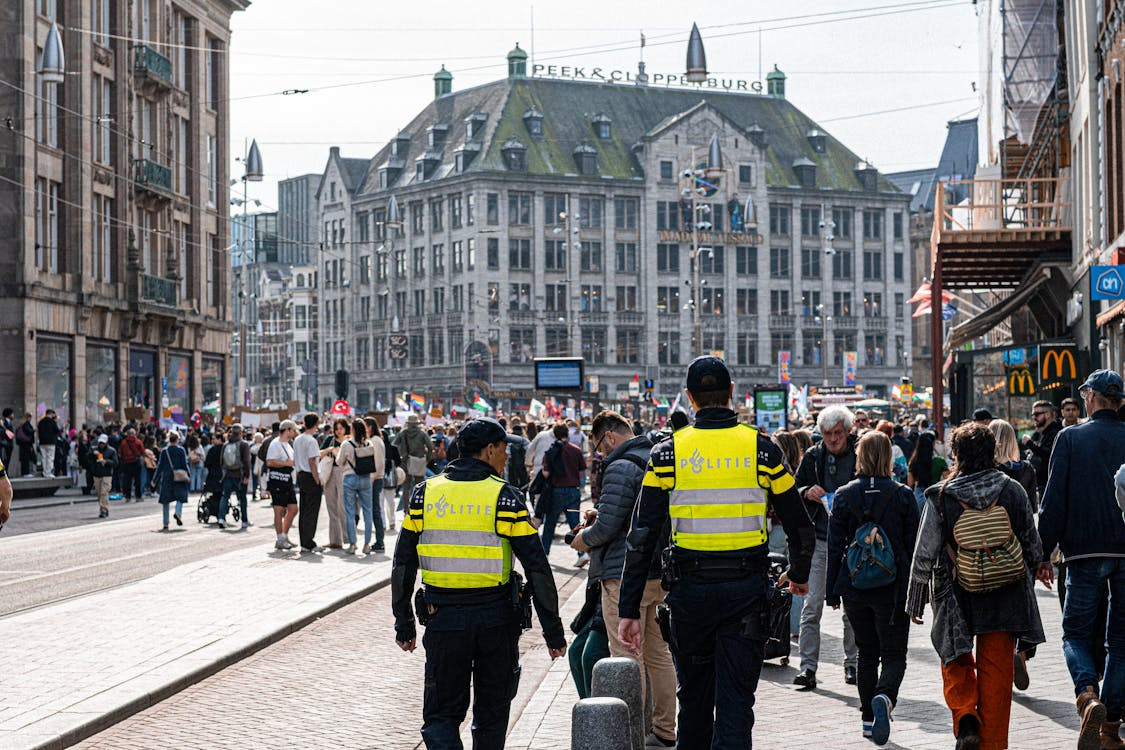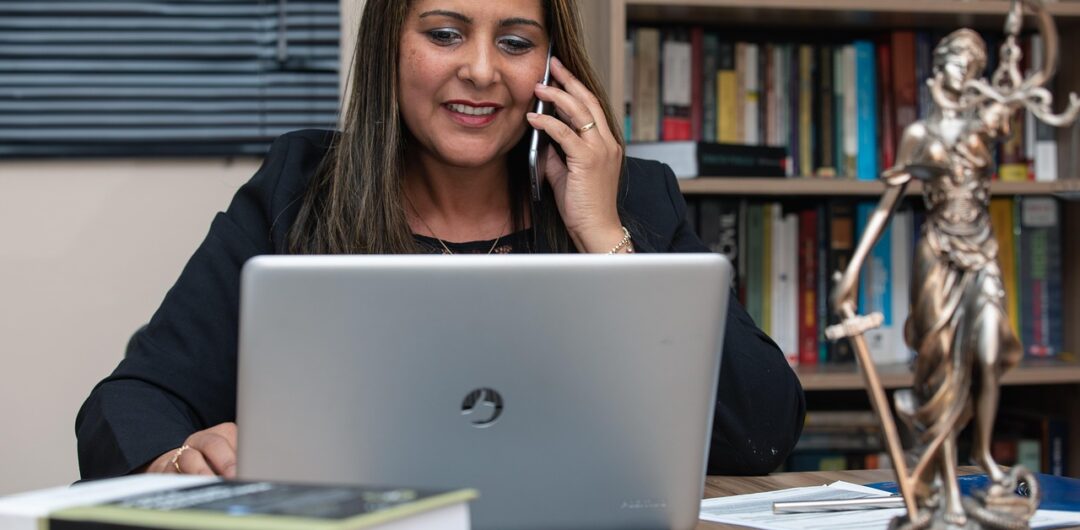The number one piece of advice to any traveler is to behave yourself while visiting abroad. It’s important to respect the local customs and culture and to do your research beforehand to see if that’s acceptable to you. We’re going to assume that because you’re reading this, you’re not necessarily in a spot of bother abroad just yet, nor have you fallen foul of law enforcement. As such, you can make preparations. Here are easy tips and sound advice on how to minimize or overcome trouble abroad should you find yourself in it.

For example, in some cultures, women may be expected to cover up or not wear immodest clothing. You may disagree with that, as is your right, but heading there only to flout the norms can sometimes bring conflict or disagreement your way, and it’s inadvisable.
In the same way, any traveler can experience a difficulty and find themselves in a tough situation. It’s why your own country will often have official travel advice for every other country in the world, often defined so you know what to expect and how the system works differently to the one you’re used to.
A Spot Of Trouble Abroad? First, Read the Official Country Advice
No matter where you’re going, it’s always worth taking a look at the official travel advice provided by your own country. These guidelines will usually give you details about the political climate, safety concerns, local laws, and potential risks you might not have considered. Even if a country is generally safe, certain areas might be best avoided, or you might need to follow specific processes upon arrival. These are dynamic listings too, for instance some European countries have updated their travel guidance for the USA, given the new strong border enforcement approach of the new administration (writing in 2025).
It’s also good to check visa requirements, health recommendations, and any legal alternatives that could be different from what you’re used to. Some places require that you carry identification at all times, and some have strict rules on things like medication. It can also tell you about what rights you’re afforded or if corruption is particularly high, which is important to know. Don’t expect another country to be exactly like yours unless explicitly stated.
A Spot Of Trouble Abroad? Be Aware Of The Culture & Customs
One of the quickest ways to land yourself in trouble abroad is to ignore or misunderstand the local customs. Every country has its own social norms, and in some places, what might be a minor issue at home could be a serious offense. If you go to Dubai and engage in a substance that might be legal back home, you could find yourself in jail, to use an example. Many tourists have found that out the hard way.
Take clothing rules as we alluded to in our intro. Some countries have expectations about modesty that might be unfamiliar to you. Moreover, hand gestures, public displays of affection, or even the way you address someone can carry different meanings depending on where you are. That doesn’t mean you’re going to be thrown into a jail because of a mistake, but it does mean you won’t expect the kind of reaction you may have enjoyed back home.
As such, reading up on local customs before you travel can help you avoid awkward or even risky situations, even if not every expectation is strictly enforced. As we mentioned above, sometimes the culture can also be much different to what you’re used to. Perhaps the likelihood of being pulled over and asked for a bribe, or heavily suggested to give one to make the problem go away, isn’t too uncommon. That’s not to say you should do this or offer it, but if you know what to expect in some places, you can avoid an issue from growing.
A Spot Of Trouble Abroad? Identify Yourself If Taken By Law Enforcement
Getting stopped or questioned by law enforcement in another country can be stressful, but staying calm and cooperative is essential. The most important thing you can do is identify yourself properly, as in many countries, police expect you to carry identification at all times, so having a copy of your passport or visa on hand is a smart move.
If you’re detained or questioned, answer straightforwardly and don’t argue with them. Even if you believe you’re in the right, getting defensive rarely helps or they’re unlikely to just acquiesce to you when you have no power. In some places, arguing with authorities can escalate a situation quickly. If there’s a language barrier, remain polite and patient and ask for a translator if you can. Of course, if you’re entitled to legal representation, ask for it as soon as possible, more on that next.

A Spot Of Trouble Abroad? Speak To Legal Services If Entitled To It
If you do find yourself in trouble with the law, knowing your rights is essential. In some countries, you’re entitled to legal representation, but unfortunately that’s not always the case. The process can be very different from what you’re used to. Some places allow you to make a phone call, but not always, as some might require you to wait until a hearing.
If legal services are available to you, take advantage of them immediately and don’t talk until you know. Moreover, avoid signing anything you don’t fully understand. The process may be frustrating, but being patient and following the appropriate steps can make a big difference in how the situation develops. Remember that you’re not the only person from your country that has been in trouble in this country before, so they’re unlikely to be completely at a loss to find a solution for you. If you’re a citizen, you are the responsibility of your host country and representatives will often be contacted on your behalf. In some cases services can be used such as Balboa Bail Bonds to help you leave confinement in the interim.

A Spot Of Trouble Abroad? If You Can, Contact Your Relatives
If you run into trouble, letting your family or close friends know what’s going on can be a huge help. If you’re detained, hospitalized, or even just stranded, having someone back home who knows your situation means they can advocate for you, contact authorities on your behalf, or even help arrange funds if they’re needed.
Some countries may allow you to make a call or send a message, and while an embassy should be your first choice, this can be reliable too, especially if you’re with someone on the trip and they’re not sure where you went. If possible, keep an emergency contact list with important phone numbers written down somewhere, rather than relying only on your phone. You never know when you might need them. In your wallet or purse can be a good idea.
A Spot Of Trouble Abroad? Contact Your Embassy As Soon As Possible
Your country’s embassy or consulate exists to help citizens in situations just like these, so don’t be embarrassed. If you’re detained, injured, or facing a serious issue, they can offer guidance, give you the right legal support, and, in some cases, even help arrange your return home.
Embassies won’t necessarily get you out of trouble no questions asked of course, but they can ensure you’re treated fairly under local law, help you find legal assistance, and notify your family if needed. Don’t wait, let them know, they can only ever help you. After all, if you’re mistreated it can become a diplomatic incident.
A Spot Of Trouble Abroad? In Some Cases, Cut Your Losses & Return Home
Sometimes, the best option is to leave before things get worse. If you’ve gotten into trouble but have the chance to go home without lasting consequences, it might be the right choice to cut your losses and leave, even if you experience a travel ban from that country in future. Traveling is an amazing experience sure, but it’s not without its risks, and you’re often better safe than sorry.
